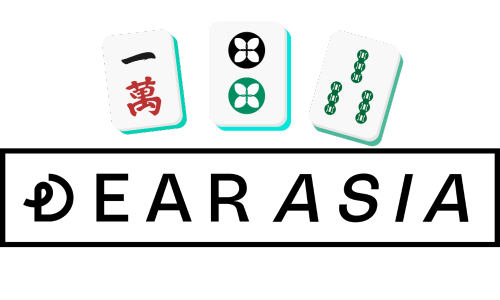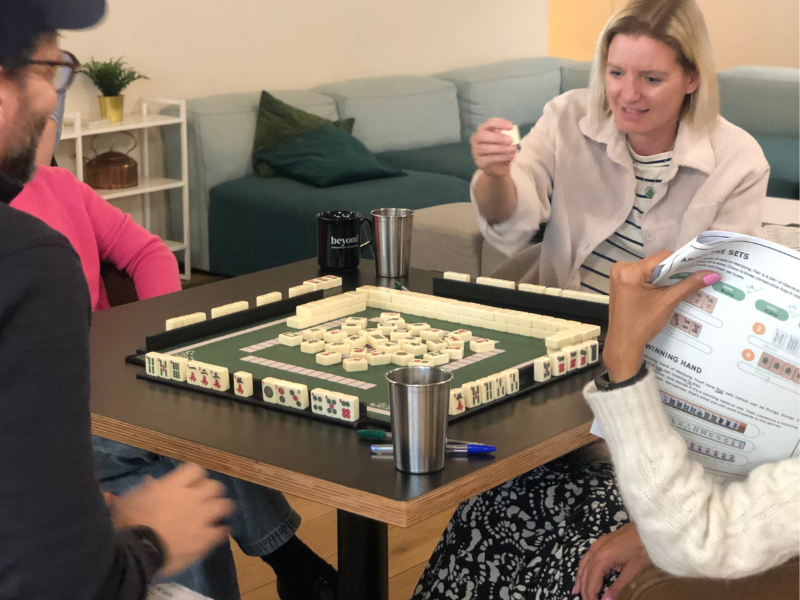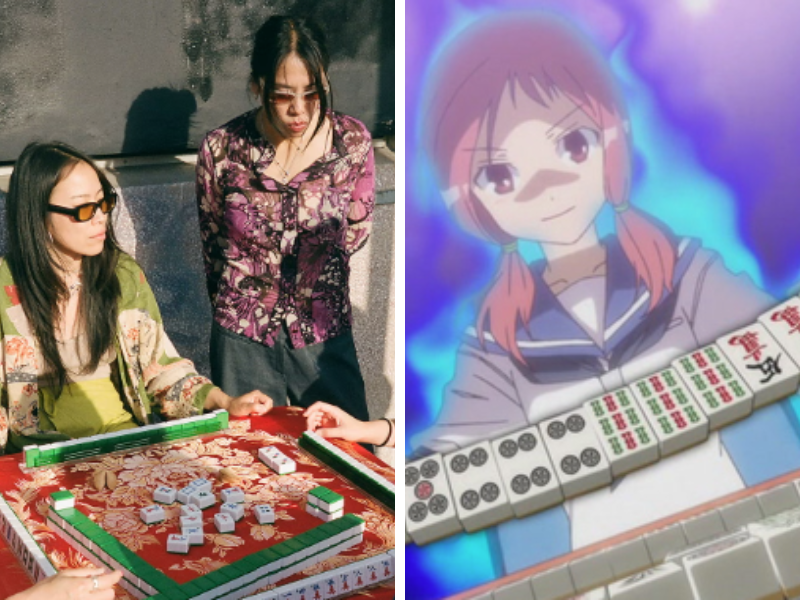Top Top 5 Beginner Mistakes to Avoid When Learning Mahjong5 Beginner Mistakes to Avoid When Learning Mahjong
Mahjong is more than just a game — it’s a social ritual, a cultural treasure, and a fantastic way to engage your mind. Whether you’ve discovered Mahjong through friends, family, a workshop, or sheer curiosity, you’re not alone in wanting to learn. But like with any game that blends strategy, tradition, and luck, beginners can fall into a few common traps that slow their progress or take the fun out of learning.
If you’re new to the tiles and looking to build a strong foundation, this guide is for you. Here are the top 5 beginner mistakes to avoid when learning Mahjong, and how to sidestep them for a smoother, more enjoyable journey into the game.
1. Jumping Into a Complex Version Too Soon
One of the biggest missteps beginners make is starting with a version of Mahjong that’s too advanced. There are several regional styles — Chinese Classical, Hong Kong, Taiwanese, Japanese Riichi, and American Mahjong, just to name a few. Some have intricate scoring systems and complex rule sets that can overwhelm newcomers.
🀄️ Why It’s a Problem:
Beginners often get stuck trying to understand every scoring combination or tile group, and the joy of play is lost in the confusion.
✅ What to Do Instead:
Instead of diving into the most complicated version you can find, choose a beginner-friendly Mahjong style like Hong Kong style Mahjong. These tend to have simpler scoring systems and fewer exceptions, making them ideal for learning the core flow of the game. Consider joining a local workshop or guided game session, where the rules are taught gradually, and you get hands-on support. Once you’re comfortable with the basics — forming a hand, drawing/discarding, calling tiles — you can explore other regional versions with more confidence.
Pro tip: Look for a Mahjong club that has you covered from beginner to advanced levels — one that not only teaches you how to play, but also offers regular sessions where you can join a table. In a big city like London, it can be surprisingly hard to find people to play with — so having a built-in community makes all the difference.
2. Memorising the Tiles Without Understanding the Patterns
It’s tempting to begin by memorising all the different suits, characters, and symbols. While knowing your tiles is important, focusing only on memorisation can slow your ability to see how they work together to form a winning hand.
🀄️ Why It’s a Problem:
You might know what a “Bamboo 7” looks like, but not realise how to use it in a sequence. Without pattern recognition, gameplay feels random and overwhelming.
✅ What to Do Instead: Learn Tile Patterns Before Memorizing Every Symbol
Rather than trying to remember what every tile looks like on day one, focus on how tiles interact. Learn to spot basic sets like “chows” (three tiles in a sequence), “pungs” (three of a kind), and pairs. As you play more, the symbols — like bamboo sticks, dots, and Chinese characters — will become familiar through repetition. Try laying out mock hands at home or using a beginner-friendly app that helps with pattern recognition.
Bonus tip: When you’re learning in a workshop, ask the host to walk you through why a hand is valid — breaking it down pattern by pattern. Seeing real-life examples makes abstract rules click faster.
#mahjong_dearasia
We know learning Mahjong on your own is hard—and not very fun. Dear Asia is the Mahjong school you’ve been looking for. Based in London, book tickets for our regular Saturday workshops below or hire our private Mahjong instructors.

3. Overlooking the Importance of Discards
A lot of beginners focus only on building their own hand and forget to pay attention to the discard pile and the tiles other players are throwing away. Mahjong is not just about what you draw — it’s about what others are doing too.
🀄️ Why It’s a Problem:
You may accidentally discard a tile that gives someone else Mahjong, or miss a clear opportunity to read your opponents’ hands.
✅ What to Do Instead: Pay Attention to Discards and Table Play
Train yourself early on to look beyond your own tiles. Watch what others are discarding — this can reveal a lot about what hands they’re building (or avoiding). You’ll also start to understand what tiles are safe to throw and which ones might help another player win. It adds a layer of strategy that makes Mahjong truly exciting.
Practice tip: During beginner games, pause every few turns and ask: “Why do you think they discarded that tile?” These helps to build intuition much faster than trial and error alone.
4. Trying to Win Too Quickly
We get it — winning your first Mahjong hand is exciting. But rushing to win without understanding strategy can lead to frustration. Some beginners focus solely on completing a hand quickly instead of developing their skills, observing the game, or experimenting with tactics.
🀄️ Why It’s a Problem:
You miss out on the learning process and can develop bad habits (like ignoring safe discards or over-prioritising certain tiles).
✅ What to Do Instead: Play for Progress, not just to win
It’s totally natural to want to win your first hand — but Mahjong is a game of patience, observation, and timing. Early on, focus on developing consistency over chasing a win. Try experimenting with different hands, practicing defensive discards, or playing “open hands” where everyone sees each other’s tiles and discusses strategy. You’ll learn more in one slow game with discussion than in five rushed rounds.
Pro tip: Keep a Mahjong journal! Jot down a new concept, mistake, or clever move after each session. It helps you track your improvement and turns every game into a lesson.
Want to hire us?
London Mahjong Instructors
Our Mahjong instructors are professional teachers who know how to teach anyone to play—quickly, practically, and in a fun, social way. Read our reviews to see how well we do. Book us for your event—we’ve worked with celebrities, film sets, and large corporate functions!

5. Not Asking Questions or Engaging With the Community
Mahjong is a social game at its core. One of the biggest mistakes new players make is staying silent — not asking for help, not talking through moves, or not joining community games or workshops.
🀄️ Why It’s a Problem:
You miss out on collective learning, cultural insights, and strategies that only come from experience and conversation. Mahjong isn’t meant to be learned in isolation.
✅ What to Do Instead: Ask questions and Join a Club or Workshop
Be curious and ask questions! Whether you’re in a casual game, a local Mahjong workshop in London, or part of a Mahjong community, there’s always someone willing to share knowledge. The more you engage, the faster you’ll improve — and the more fun you’ll have along the way.
The best way to learn Mahjong isn’t through YouTube rabbit holes or memorising rulebooks — it’s by sitting down at a real table, with real people, and playing together. Joining a local Mahjong workshop or community club gives you the chance to ask questions, observe other players, and build your confidence step by step. It’s a welcoming space to make mistakes, learn the flow of the game, and feel the joy of shared laughter over tiles. If you’re in London, a beginner mahjong workshop are perfect for first-timers — no pressure, just good vibes and a cup of tea and coffee.
Final Thoughts: Play with Curiosity, Not Perfection
Learning Mahjong is like learning a language — you won’t be fluent overnight, but with time and practice, the pieces start to make sense. Don’t be discouraged by early confusion or losses. Everyone was a beginner once, even that player who seems to always win with a smile.
By avoiding these common mistakes, you’ll gain a deeper appreciation for the game and the culture it represents. More importantly, you’ll build the confidence to return to the table again and again.
Ready to Learn or Play in London?
Whether you’re brand new or want to sharpen your skills, our Mahjong workshops and Just Play sessions in London are designed to help you learn in a welcoming, beginner-friendly space. No pressure, no jargon — just good people, warm tea, and great games.







